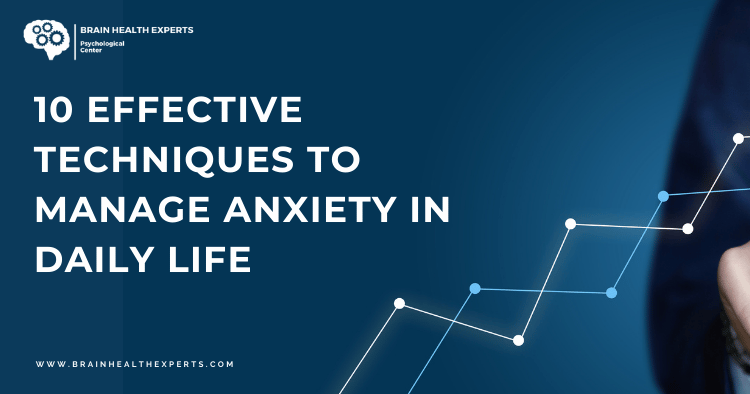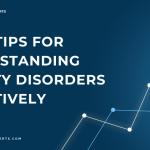Table of Contents
- Understanding Anxiety
- Practice Mindfulness and Meditation
- Engage in Regular Physical Activity
- Establish a Healthy Sleep Routine
- Limit Caffeine and Alcohol Intake
- Connect with Others
- Set Realistic Goals
- Practice Deep Breathing Exercises
- Keep a Journal
- Seek Professional Help
Understanding Anxiety
Anxiety is a common emotional response to stress, characterized by feelings of worry, fear, or apprehension. It can manifest in various forms, including generalized anxiety disorder, panic disorder, and social anxiety. Understanding anxiety is the first step to managing it effectively. According to the Anxiety and Depression Association of America, anxiety disorders affect millions of people, making it crucial to find effective techniques for managing these feelings.
“Awareness is the first step to change. Understanding your anxiety can empower you to take control.”
Practice Mindfulness and Meditation
Mindfulness and meditation are effective techniques for managing anxiety. These practices help you stay present and reduce racing thoughts. Mindfulness involves paying attention to the present moment without judgment. You can start by dedicating just 5-10 minutes daily to mindfulness. Use guided meditations through apps like Headspace or Calm to help you get started.
Benefits:
- Reduces stress
- Enhances self-awareness
- Improves emotional regulation
“Mindfulness is like a superpower; it allows you to step back and observe your thoughts without getting swept away.”
For more information on mindfulness techniques, check out 10 Mindfulness Practices to Reduce Stress Effectively.
Engage in Regular Physical Activity
Physical activity is a natural anxiety reliever. Exercise releases endorphins, which are chemicals in your brain that act as natural painkillers and mood elevators. Aim for at least 30 minutes of moderate exercise most days of the week. This can include activities like walking, running, swimming, or even dancing.
Recommended Activities:
| Activity | Duration | Benefits |
|---|---|---|
| Walking | 30 mins | Lowers stress, improves mood |
| Yoga | 30 mins | Increases flexibility, calms mind |
| Strength Training | 30 mins | Builds confidence, reduces tension |
“Exercise is a celebration of what your body can do, not a punishment for what you ate.”
For more insights on how physical activity can boost mental health, refer to 10 Ways Positive Thinking Boosts Physical Health.
Establish a Healthy Sleep Routine
Sleep and anxiety are closely linked. Insufficient sleep can exacerbate anxiety, while anxiety can hinder sleep quality. Aim for 7-9 hours of quality sleep each night. Establishing a bedtime routine can significantly improve your sleep hygiene.
Tips for Better Sleep:
- Set a consistent bedtime
- Create a calming pre-sleep routine (reading, warm bath)
- Limit screen time before bed
“Sleep is the best meditation. A well-rested mind is more resilient against anxiety.”
Limit Caffeine and Alcohol Intake
Caffeine and alcohol can heighten anxiety levels. Caffeine is a stimulant that can trigger or worsen anxiety symptoms, while alcohol may initially relax you but can lead to increased anxiety levels as it wears off. Monitoring your intake can significantly benefit your mental health.
Steps to Limit Intake:
- Switch to decaffeinated beverages
- Set daily limits for alcohol consumption
- Opt for herbal teas instead of caffeine-laden drinks
“Sometimes, less is more. Reducing stimulants can lead to a calmer mind.”
For additional tips on managing stress, see 10 Proven Stress Management Techniques for Daily Relief.
Connect with Others
Social support plays a crucial role in managing anxiety. Connecting with friends and family can provide emotional support and a sense of belonging. Even a simple text or phone call can help lift your spirits. If you’re feeling overwhelmed, consider joining a support group or engaging in community activities.
Benefits of Connection:
- Reduces feelings of isolation
- Provides a platform to share experiences
- Encourages positive coping strategies
“You don’t have to go through this alone. Lean on your community; connection is powerful.”
Explore how positive thinking can transform relationships by visiting 10 Ways Positive Thinking Transforms Your Relationships.
Set Realistic Goals
Setting achievable goals can help you manage anxiety by providing a sense of purpose and accomplishment. Break larger tasks into smaller, manageable steps. Celebrate your successes, no matter how small they may seem.
SMART Goals Framework:
| Component | Description |
|---|---|
| Specific | Clearly define what you want to achieve |
| Measurable | Track your progress |
| Achievable | Ensure it’s realistic |
| Relevant | Align with your broader life goals |
| Time-bound | Set a deadline |
“Small steps can lead to big changes. Celebrate your journey, not just the destination.”
Practice Deep Breathing Exercises
Deep breathing is a simple yet effective way to reduce anxiety on the spot. It activates your body’s relaxation response, helping to calm your mind. You can practice deep breathing anywhere, whether at home, work, or in public spaces.
Simple Deep Breathing Technique:
- Inhale deeply through your nose for 4 counts.
- Hold your breath for 4 counts.
- Exhale slowly through your mouth for 6 counts.
- Repeat this for 5-10 minutes.
“Breathing is the bridge between your body and mind. Use it to find your calm.”
For further exploration of breathing techniques, check out 10 Breathing Exercises to Alleviate Stress Effectively.
Keep a Journal
Journaling can be a powerful tool for managing anxiety. Writing down your thoughts and feelings allows you to process and release them. It can help you identify patterns in your anxiety and develop coping strategies.
Tips for Journaling:
- Write daily or as needed
- Focus on your feelings, triggers, and coping strategies
- Use prompts if you’re unsure where to start (e.g., “What made me anxious today?”)
“Your journal is your personal space. Write freely and let your thoughts flow.”
For more journaling techniques, refer to 5 Journaling Techniques to Reduce Stress Effectively.
Seek Professional Help
If your anxiety persists or worsens, consider seeking professional help. Therapists and counselors can provide valuable insights and coping strategies tailored to your needs. Cognitive-behavioral therapy (CBT) is one effective approach that has been shown to help many individuals manage anxiety.
When to Seek Help:
- Anxiety interferes with daily activities
- You experience panic attacks
- You feel overwhelmed and unable to cope
“Seeking help is a sign of strength, not weakness. Your mental health matters.”
For resources on finding a mental health professional, visit the National Alliance on Mental Illness.
Conclusion
Managing anxiety in daily life is achievable with the right techniques and support. Incorporating mindfulness, physical activity, and social connections can create a foundation for a more balanced and peaceful life. Remember, it’s okay to seek help, and you’re not alone in this journey. By taking proactive steps, you can manage your anxiety and improve your overall well-being.
“Every step you take towards managing your anxiety is a step towards a happier life. Keep going!”
Feel free to share your experiences or additional techniques in the comments below!




